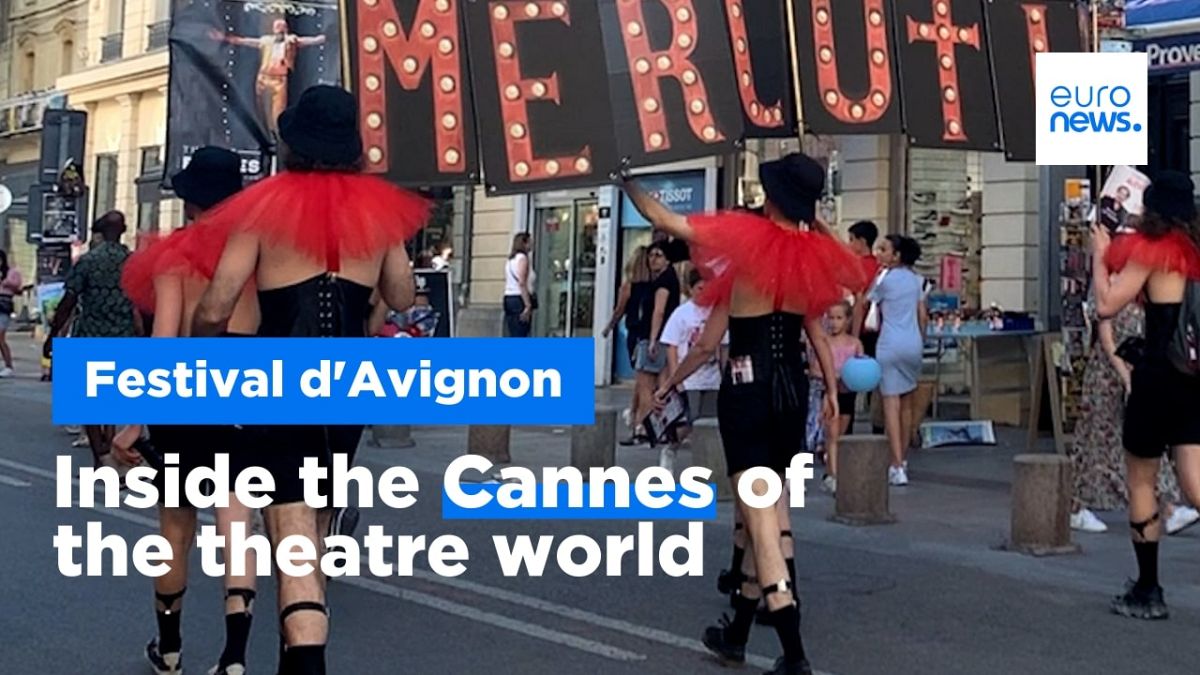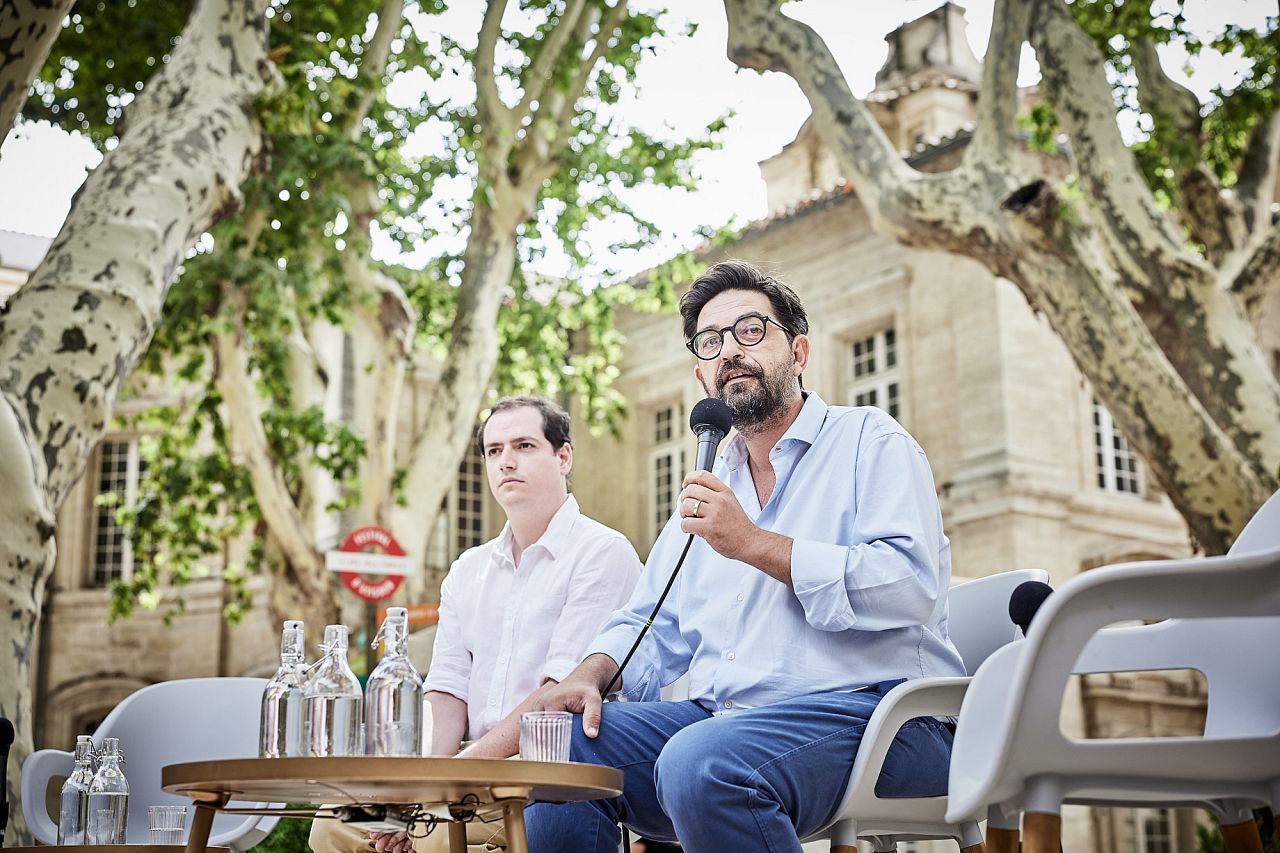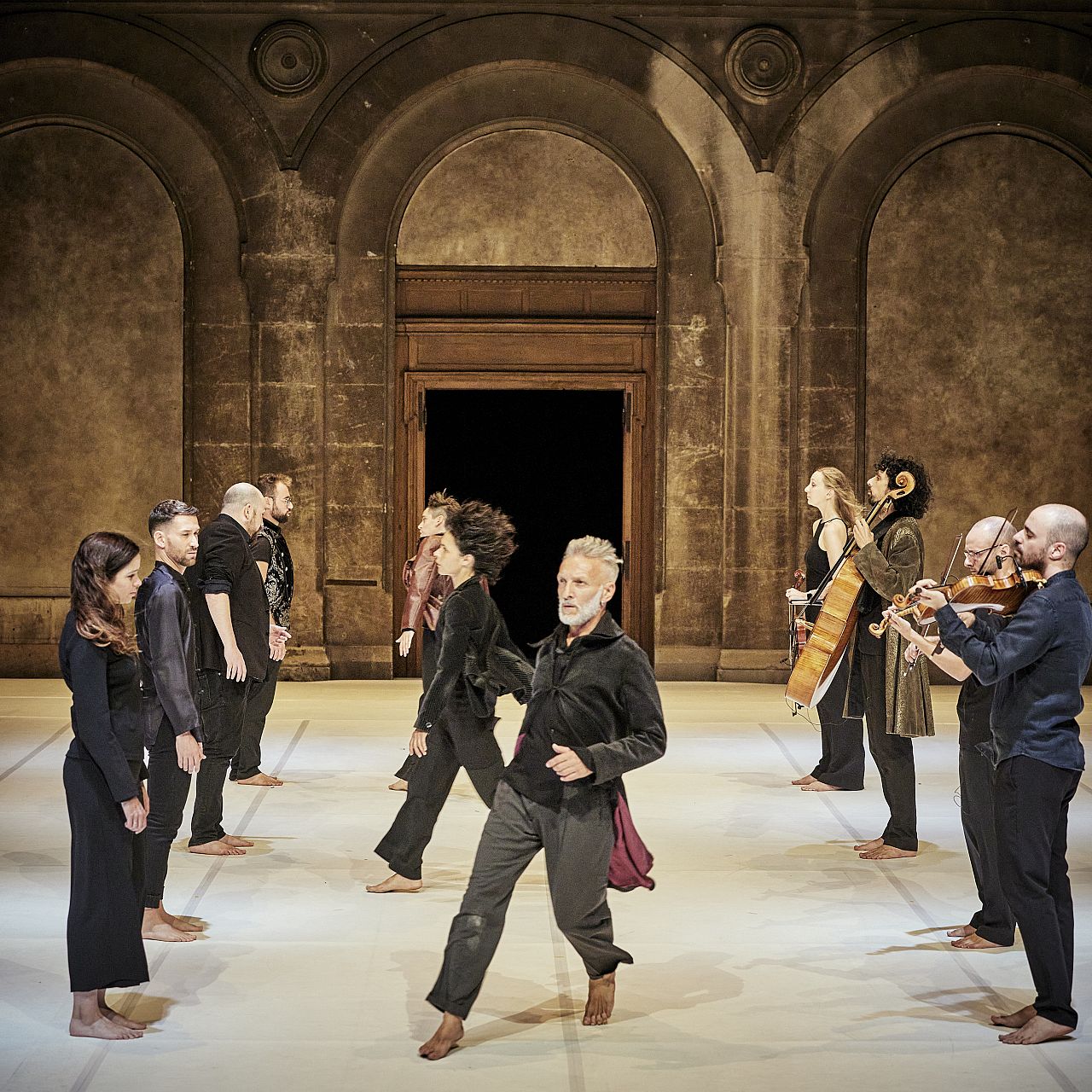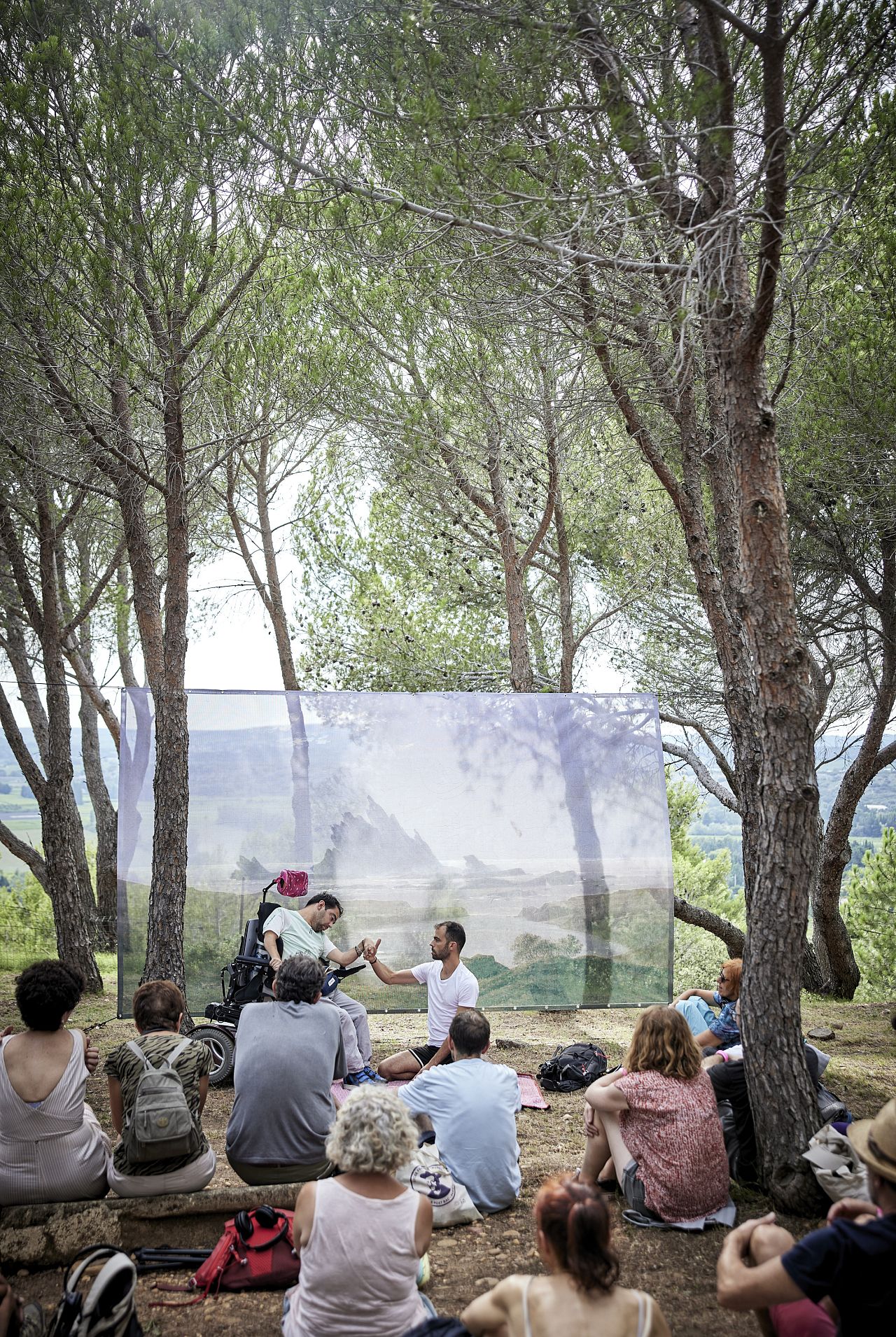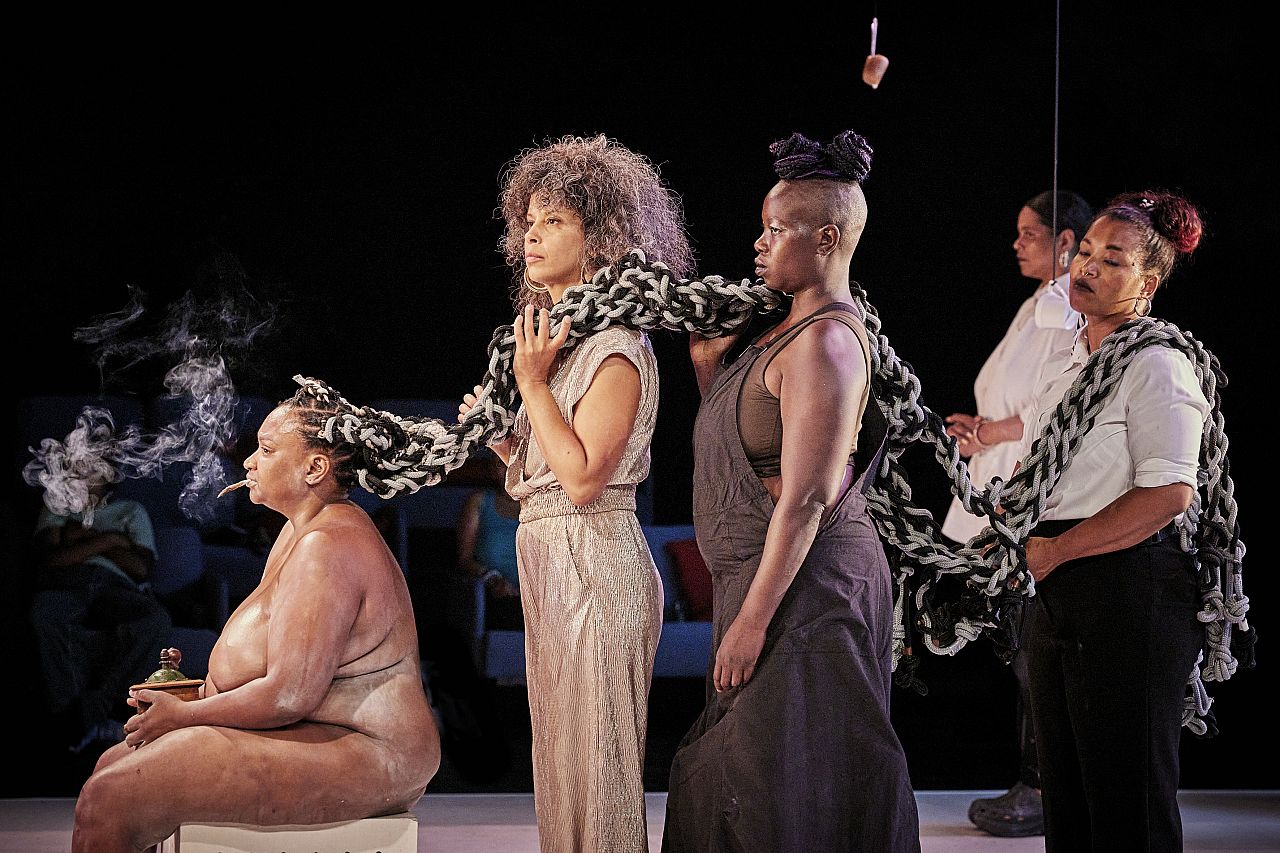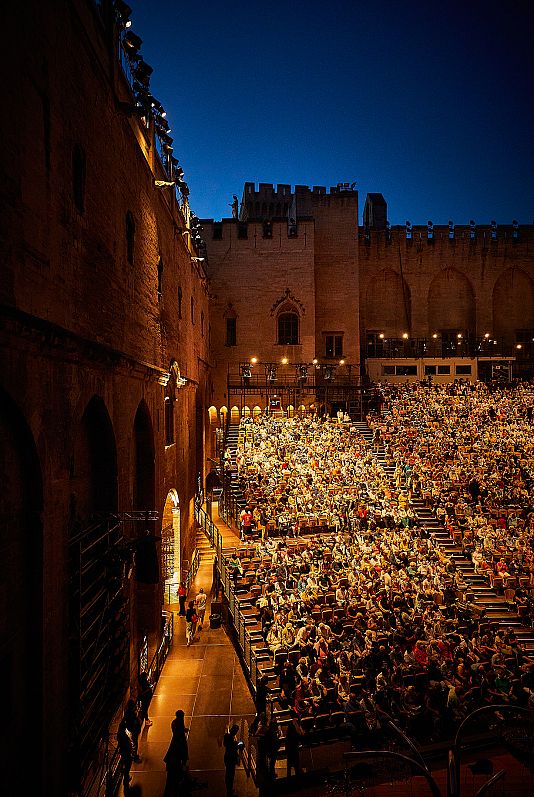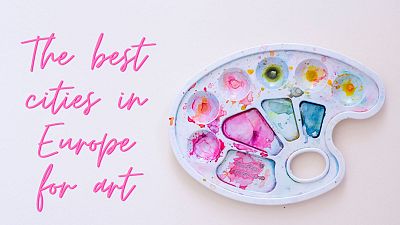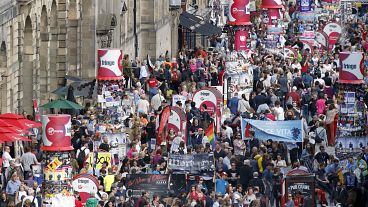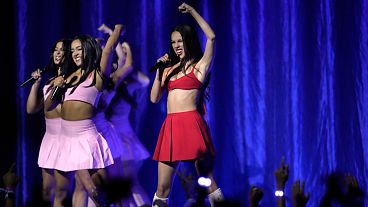France's world-renowned theatre festival came to a close this week. Euronews Culture looks back at the festival's 77th edition - which proved to be more European than ever.
One of the highlights of the European theatre calendar has just drawn to a close. Every July, the streets of the medieval city of Avignon - in the South-East of France - comes to life with theatre and performance art.
But for its 77th edition, France's oldest festival was given a shake-up.
Portuguese playwright and director Tiago Rodrigues became the first-non-French director of the Festival d'Avignon.
"I consider the festival to be one of the ‘café lumières’ of Europe. I want it to be a place for debate about Europe - not a self-centred Europe but one that is open to the world", he told Euronews Culture.
Rodrigues was appointed to direct the festival - which was created in 1947 - for a four-year term. "Whether you go to Patagonia or Reykjavik and you speak to someone who’s into theatre, they’ll have heard of the Festival d’Avignon!"
This year’s edition presented 44 plays and sold 115,000 tickets - with many free shows also taking place.
Fighting "political mistakes" by spotlighting British artists
To kick his term off, Rodrigues introduced the idea of spotlighting a foreign language - which this year was English.
"We chose English to take a stance against Brexit," Tiago Rodrigues said. "We want to connect with British artists - we won’t let political mistakes build walls between us."
Festival-goers had the opportunity to watch translated productions as well as performances created by British and English-speaking artists. Works by Tim Crouch, John Collins and Tim Etchells had pride of place.
Next year, the festival's official language will be Spanish.
"It's a language with a rich global presence, which tells the story of Europe, charged with a colonial history but also with a huge wealth of heritage," explains Rodrigues.
Attracting an international audience
Three quarters of the artists performing at this year’s festival were newcomers. Catalan troupe Mal Pelo performed their dance show 'Inventions’ to the music of Bach.
Mal Pelo assembles an international panorama of artists, with performers from Italy, Belarus, Hungary and Switzerland.
"We started working on this show during the pandemic," says Pep Ramis, co-founder of Mal Pelo. "The soul of the piece is about the need to meet and connect. Being in Avignon represents a huge opportunity to open up our work to the world."
Another European production which broke the fourth wall was 'Paysages partagés' (‘Shared landscapes’) - which took the festival outside of the city. For seven hours, spectators embarked on a sensorial journey across the plains and forests of Pujaut, a neighbouring village.
The festival's organiser described the play as "another way of creating poetry that reconnects the human species with the living world."
Despite the festival's spotlight on international performances, much of the audience still remains French. But some European tourists did travel to Avignon especially for the festival.
"I’ve had a great time here, there were plays with English subtitles and some plays in English’" Polish tourist Karolina Ladysz told Euronews Culture. "However I’m a beginner in French and I would have struggled a little if I was not here with French people. But overall I can’t complain!"
Others preferred to stick to performances without speech.
"We don’t want to see something in French but music is universal - it doesn’t need subtitles!", shares Dutch tourist Wyb Wagenaar.
Still a way to go: Stamping out racism
This year’s edition was not without its controversies, as one show was targeted by racist physical and verbal abuse.
‘Carte noire nommée désir’, directed by Rebecca Chaillon, is a show led by an all-female cast which challenges the position of Black women in French society.
In an interview with local radio station France Bleu Vaucluse, the cast stated that they had been targeted during performances.
One spectator allegedly pointed his middle finger to the cast when "police violence" was mentioned. In another instance, a member of the audience hit an actresses’ hand when she attempted to grab his bag as part of the show.
In response, Avignon strongly condemned these acts, stating that such an outpouring of hate was "unacceptable".
Tiago Rodrigues also stated that "ethnic diversity can't be found in the audience if it can't be found on stage. We need to try to open up the stage, to ensure representative diversity on stage".
The show has continued to spark debate across social media, particularly among the far-right. A Twitter account belonging to a far-right political activist tweeted: "Meanwhile, the Festival d'Avignon's play 'Carte noire nommée désir is performing a racist production."
Funding the arts
The festival - founded by actor and director Jean Vilars in 1947 - has strived to make the arts accessible. But over the years, the festival has been variously described as 'elitist'.
A recent column in French newspaper L'Obs stated "the programming of the festival's new director, Tiago Rodrigues, is just as elitist as that of his predecessor. Among a host of pretentious, snobbish and even hollow shows."
Back in 2011, acclaimed French actor Fabrice Luchini criticised the festival for its emphasis on experimental works: "I feel like [the festival] has become the home of a sect that rejects the great [theatre] works."
The Festival d'Avignon has also been criticised for its rigorous selection process of shows. Once selected, productions receive funding from the festival’s €17 million budget - generated from public subsidies and complemented by patronage.
In a bid to democratise theatre, the alternative OFF theatre festival was founded in 1996 - with the official Festival d'Avignon being labelled the ON. The alternative OFF takes place in July in Avignon but does not have an artistic director, operating a far less stringent selection policy for plays.
This does, however, come with a downside as productions must self-fund.
"To be in the OFF festival represents a big cost for productions - we have to hire somewhere to play, someone to live and pay our salaries," Raphael Callandreau, an actor performing in the OFF festival, tells Euronews Culture.
"For a show performed by two people the cost is about €30,000 over the month - which is why it is essential that we go out into the street to hand out flyers for our show", he added.
Avignon 2024: Olympic challenges
Next year's edition will take place a week earlier than usual because of the Paris 2024 Olympics.
The festival will take place from 29 June to 21 July - a challenge which organisers have already begun preparing for to avoid personnel shortages. The festival employs over 700 staff members for the duration of the festival.
But one mission remains the same. "To surprise the audience!" assures festival director Tiago Rodrigues.
